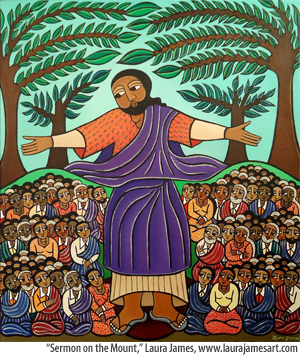 Three things that make Jesus special
Three things that make Jesus special
I like telling people what I do for a living – and watching their reaction. Whether in conversation with the parent sitting next to me at my son’s water-polo match or my daughter’s soccer game, I am sure to get an interesting response. When I tell them I teach at a local seminary, they invariably ask, “What do you teach?” I say, “Jesus.”
In the conversation that follows, I can elaborate on Jesus in several ways. I can respond as a professional historian and recite a list of statements about Jesus’s life that are almost beyond dispute and acknowledged by virtually all Jesus scholars regardless of political or religious persuasion….
Sometimes, however, it’s also appropriate to elaborate on my neighbour’s query by filling out the significance of Jesus’s life and ministry, because I’m also a confessing Christian and a biblical theologian. There are three things I would highlight.
1. Jesus’ identity is unique
The New Testament writers use various ways to identify Jesus. They call him the anointed one (Mark 8:29), the son of David (Matthew 1:1), the Son of God (Mark 1:1), the preexistent Word (John 1:1). In addition, they are uniform in their testimony to Jesus’s remarkable life as a prophet (Luke 7:16), miracle worker (John 2:11), healer (Mark 6:2), and teacher (Mark 4:2), as well as his unique character as sinless (Hebrews 4:15) and perfect (Hebrews 5:9).
Two writers, Matthew and Luke, underline the special circumstances surrounding his birth. They speak of his mother, Mary, conceiving him by the Holy Spirit while she was a virgin (Matthew 1:18; Luke 1:35).
Matthew and Luke use the Virgin Birth to make two large theological statements. In Matthew, Jesus’s miraculous birth is tied to prophecy and fulfillment (Matthew 1:22–23). Jesus’ birth is living proof that “God is with us” (Emmanuel) and that God’s ancient promise to Abraham is being fulfilled (Genesis 12:1–3). These affirmations resonate with the Gospel’s concluding promise: “I am with you always, to the end of the age” (Matthew 28:20).
In Luke, Mary’s virginal conception is used to link Jesus to the creation story in Genesis. Jesus’s birth is a new creation story; it is God’s miraculous intervention, moving creation to the final stage of its completion. The Holy Spirit that overshadows Mary (Luke 1:35) is the same Holy Spirit that broods over the waters of chaos, generating light and life (Genesis 1:2).
2. Jesus’ mission is unique
The New Testament writers show how Jesus linked the “Son of Man” expressions (Daniel 7:13) with Isaiah’s “servant” texts (Isaiah 42, 49, 52, 53, 61), finding in these ancient texts words to characterize his own mission. Jesus responds to God’s call on Israel, a call flexible enough to include Israel, a remnant within Israel, and a representative individual, the Messiah.
Likely, Jesus saw the title, Son of Man, as a “job description” for the New Israel. He saw his mission as inviting others to join him in filling out God’s purpose, first for Israel, and then for all the nations of the world. By raising Jesus from the dead to new life, God showed approval for the way that Jesus chose to embrace God’s mission, to defeat the power of sin, and to embody the purpose for which God set the universe in motion.
3. Jesus’ contribution is unique
All the New Testament writers are convinced that Jesus was a real human being, but more than that, the perfect human being. Jesus is the God-man who lived in a way unlike any other human being, a way that showed most clearly what God is like and what humanity is to be like.
Later, this conviction was enshrined in the creedal language, confessing that Jesus was fully divine and fully human. Such fully-fully terminology was designed to rule out the half-and-half terminology (half divine and half human) and the either-or terminology (either divine or human) that some early Christian groups promoted. The fully-fully terminology picks up the consistent New Testament witness to both of Jesus’s functions; he initiates and completes God’s creation.
Jesus is both “pioneer and perfecter” (Hebrews 12:2). By virtue of his obedience, Jesus confirms his identity as God’s Messiah, the divine Son of God, and opens access to God so that, freed from sin’s grip, we are finally able to join Jesus in accomplishing humanity’s mandate of partnering with God to complete the creation enterprise (Hebrews 5:8–10).
I enjoy telling people what I do. What can I say? I love Jesus; he helps me understand better who we are as human beings and what God really desires. Jesus finally makes it possible for human beings to realize their God-given potential.
–Jon Isaak is director of CMBS, Winnipeg, and was professor at MBBS from 1998–2010. This excerpt is from New Testament Theology: Extending the Table (2011), used by permission of Wipf and Stock Publishers.
